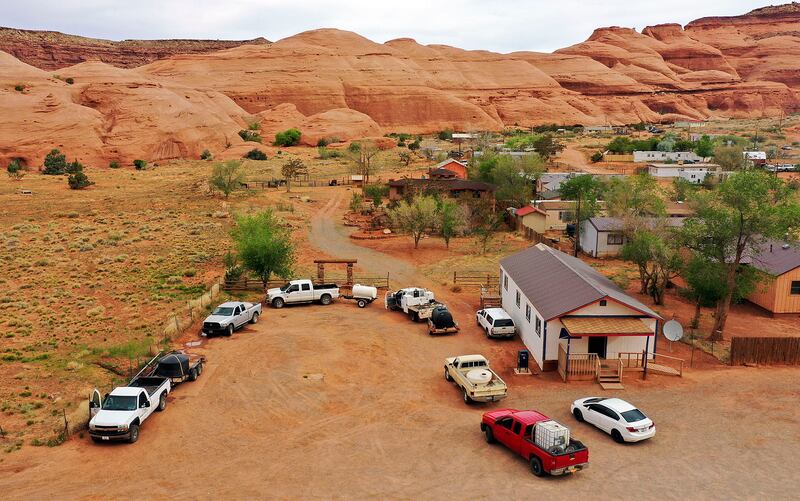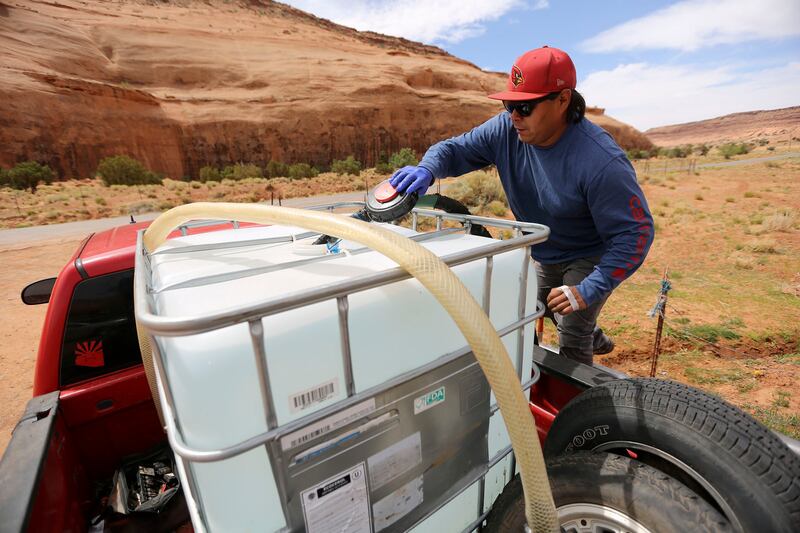A historic agreement sets aside what was destined to be a protracted legal battle between the Navajo Nation and the state of Utah over rights to water in the Colorado River.
With that agreement comes nearly $220 million in funding for the Navajo to provide drinking water to 40% of the tribe in Utah that lacks access to clean, running water.
The settlement will be at the center of a ceremonial signing Friday in southern Utah’s Monument Valley featuring Interior Secretary Deb Haaland, Utah Gov. Spencer Cox, the president of the Navajo Nation, Jonathan Nez, Lt. Gov. Deidre Henderson, and Sen. Mitt Romney, R-Utah, who negotiated the funding as part of the Infrastructure and Investment Jobs Act.
“It’s really unthinkable that in this day and age that we have American citizens of the Navajo Nation that don’t have running water and don’t have sewage systems as well. And, you know, I’m just pleased that we’re finally able to provide what is a necessity to our fellow citizens,” Romney told the Deseret News.
The Water Rights Settlement Act was actually passed in 2020, but Romney said there wasn’t a funding mechanism. That changed with negotiations to include more than $13 billion for tribal communities across the country, including nearly half of the tribe’s 5,000 residents that lack access to running water.
What the act does: This is the result of decades of negotiation, recognizing and protecting reserved water rights of the Navajo Nation and the investment of water delivery infrastructure. Specifically it:
- Recognizes a reserved water right of 81,500 acre-feet of water for current and future use by the state of Utah.
- Facilitates payment by the federal government to the Navajo Nation of over $210 million. The state of Utah will contribute $8 million toward drinking water infrastructure on the Navajo Nation.
Romney said his push for the settlement came from the legacy of the late Sen. Orrin Hatch who initiated negotiations so many years ago.
“Senator Hatch began this process a long time ago and recognized that it made no sense for almost half the citizens of Navajo Nation to lack running water. And at the same time, we had this looming court battle between Utah and the Navajo Nation over rights to the water in the Colorado River,” Romney said. “And it was his vision to put those two things together in a legislation where we clarified the water rights and got water to those that didn’t have it.”
The settlement resolves uncertainty over Colorado River water rights that dogged Utah and the Navajo Nation for years, Romney added, and will provide water to the underserved tribe that was hit particularly hard by the COVID-19 pandemic.
“You know that that really hit me hard when I realized that when COVID struck the Navajo Nation you had the families who didn’t have running water in their homes,” he said, compromising their ability to take precautions against contracting the virus.



 alt=Amy Joi O'Donoghue
alt=Amy Joi O'Donoghue